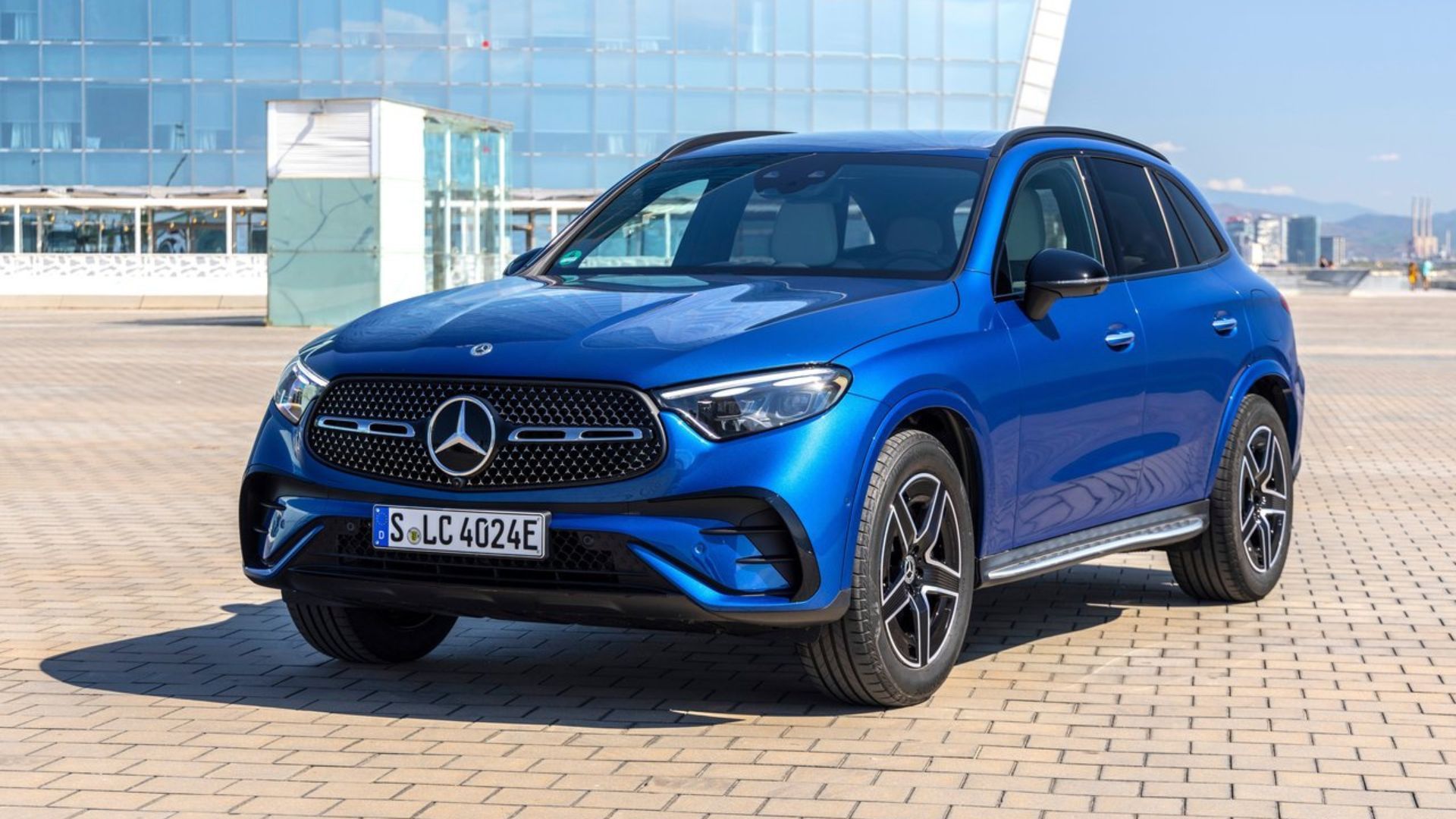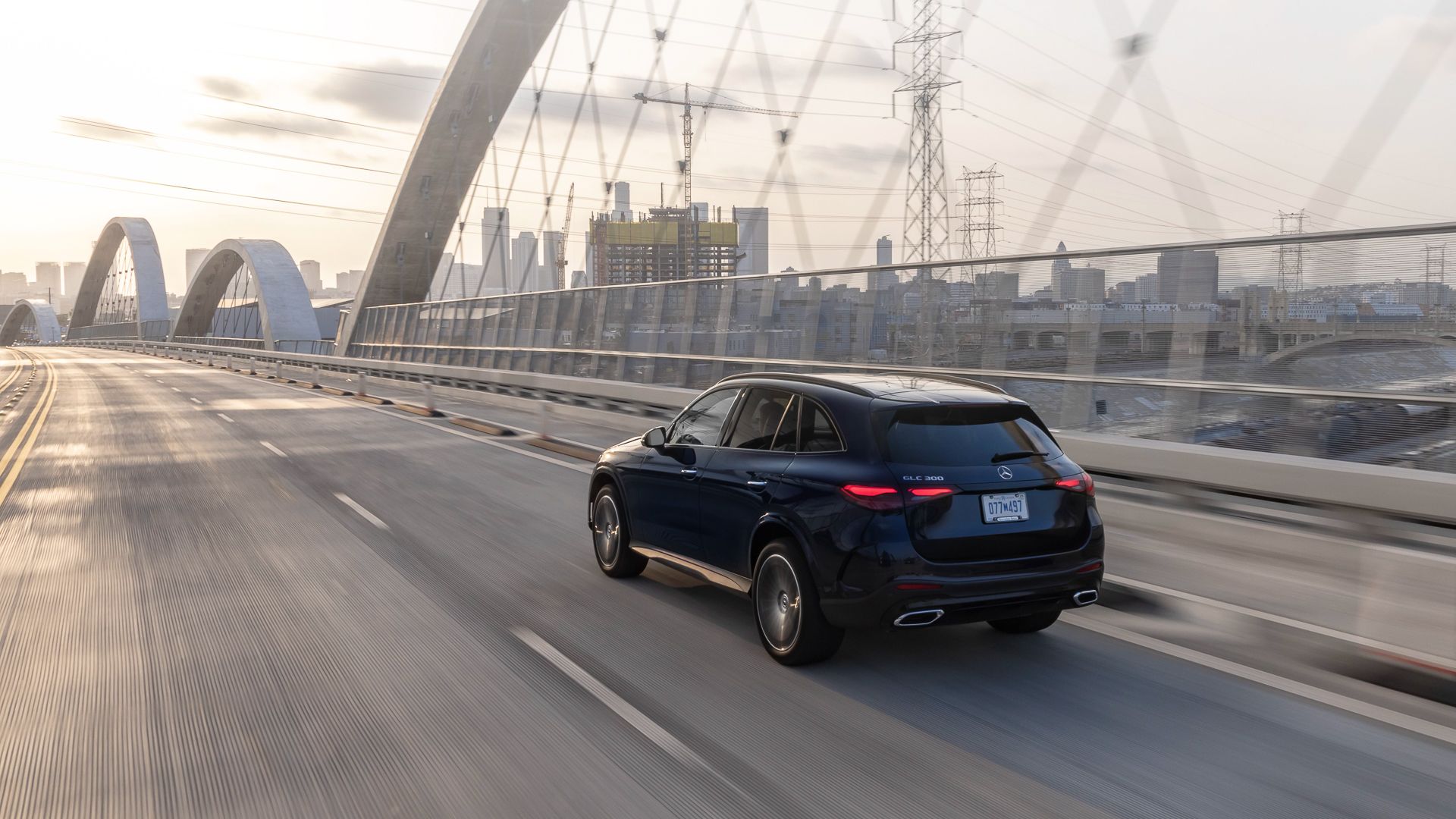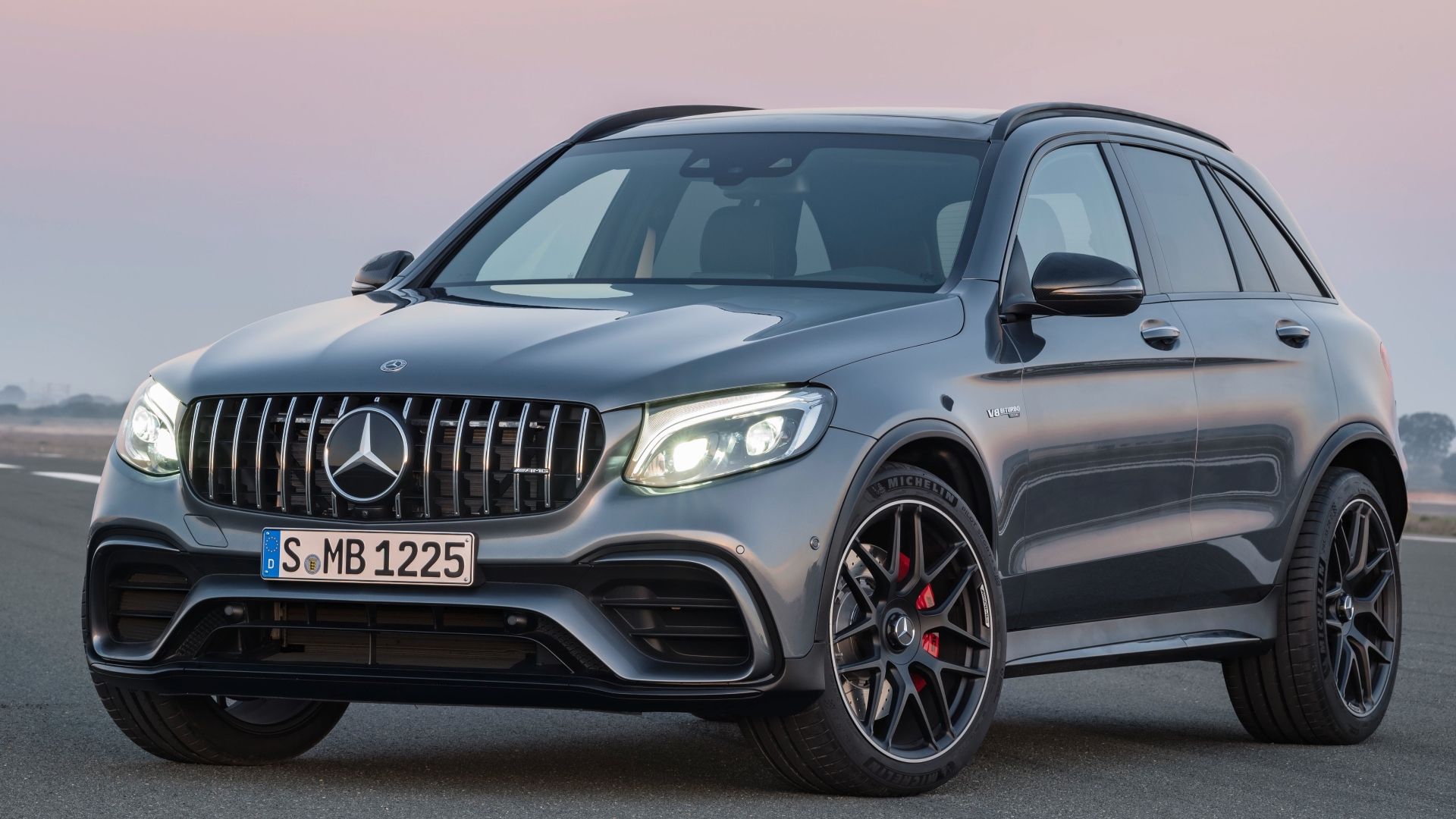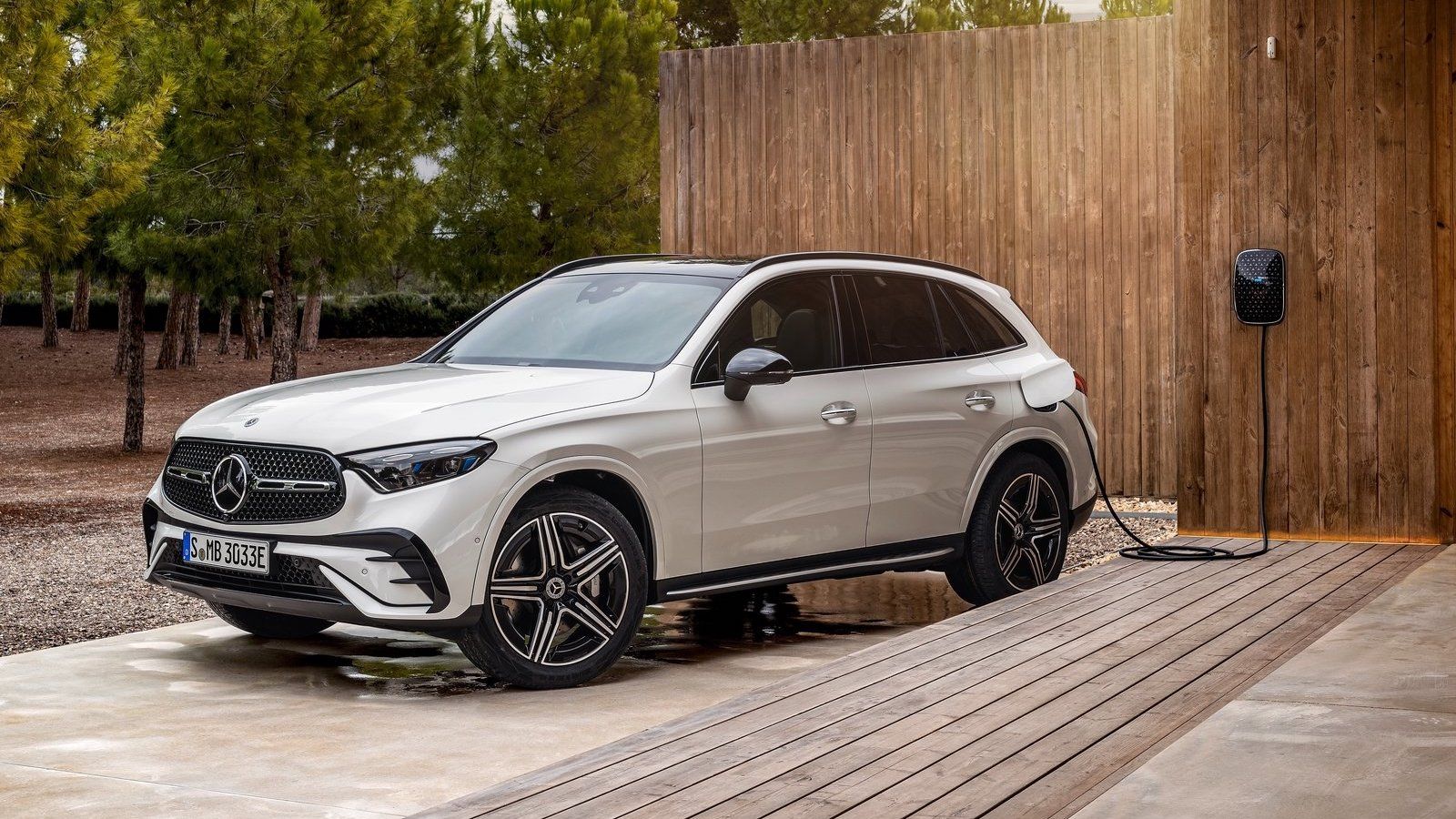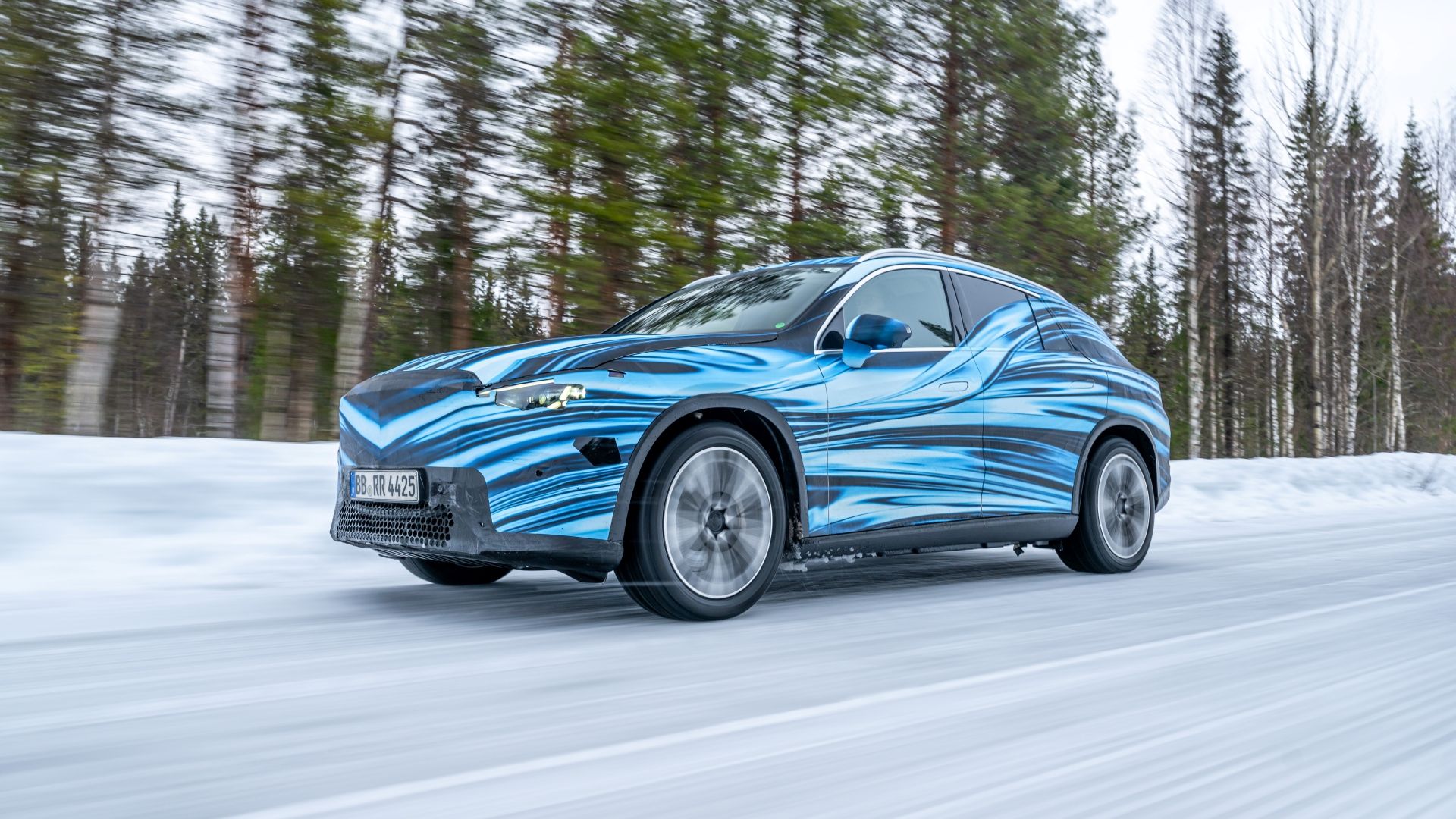Plug-in hybrids provide the perfect of each worlds—electrical driving to save lots of gas on brief journeys and a fuel engine to alleviate vary nervousness on longer journeys. Nonetheless, like all batteries, these in PHEVs degrade over time, regularly decreasing the time they will maintain a cost. There are inherent qualities and exterior forces that issue into battery degradation, which will be slowed (however not prevented) by way of habits, preservation, know-how and totally different designs. Estimates are {that a} battery will degrade about one- to two-percent per 12 months, with the typical usable lifetime of a battery spanning nicely past 10 years (although we do not know precisely how far past, but).
Most batteries are coated underneath guarantee for 8 years or 100,000 miles, so how nicely are you able to count on your PHEV’s battery to carry out by the point your battery goes off guarantee? That will depend on the mannequin and people elements we simply glossed over, and can clarify additional down. On the core, with out intending any pun, is having the fitting battery to do the right job, and proper now, there isn’t any different PHEV higher than this one, whose battery permits the longest vary proper now and 100,000 miles down the street.
With the intention to provide the latest and correct info potential, the info used to compile this text was sourced from varied producer web sites and different authoritative sources, together with the DOE, the EPA, and KBB.
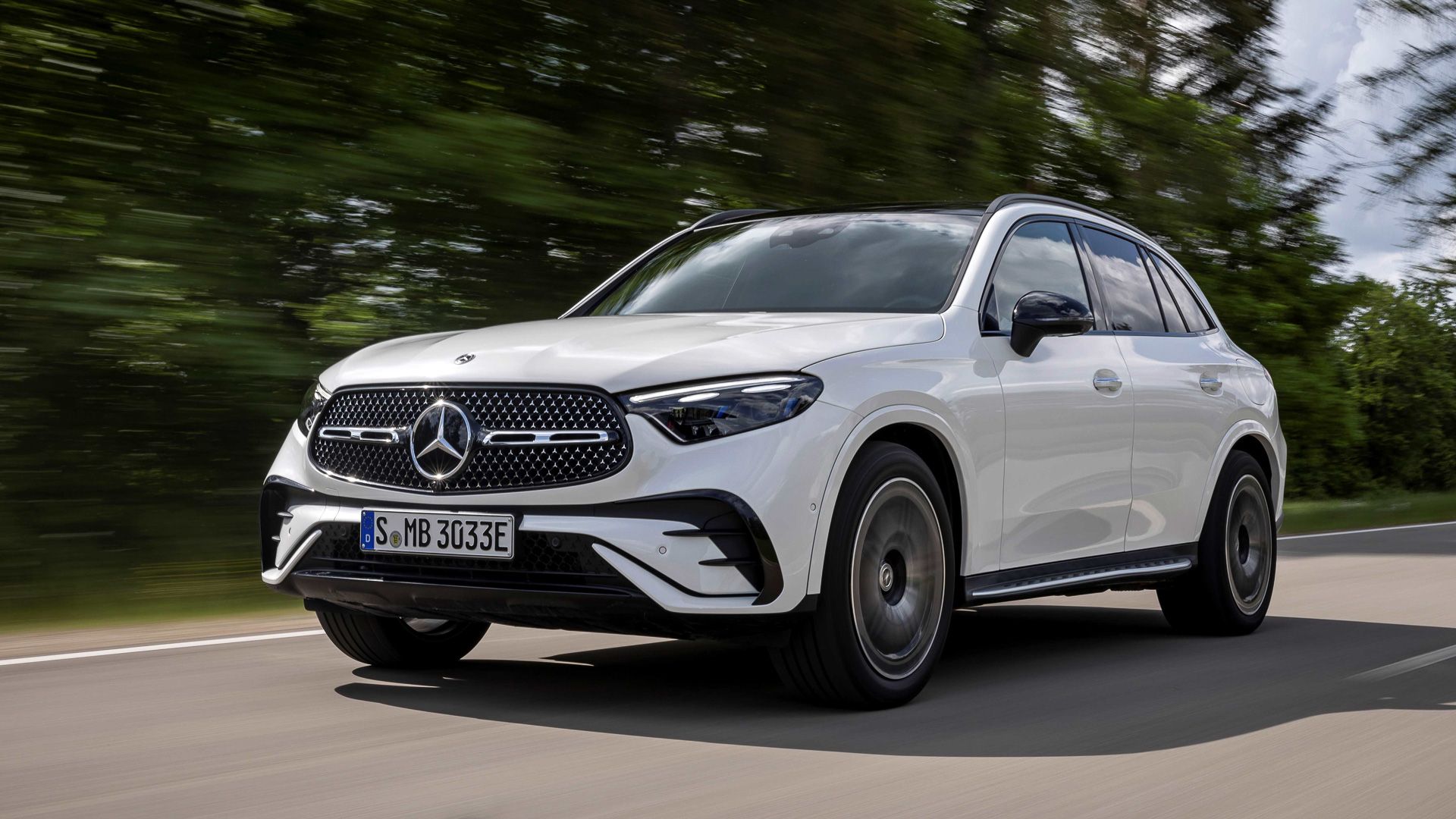
Associated
Mercedes-Benz Raises The PHEV Bar With The 2025 GLC 350e
The $59,900 beginning worth for the brand new GLC 350e PHEV locations it above key rivals, however improved electric-only vary justifies it.
The 2025 Mercedes-Benz GLC 350e Is The PHEV With The Longest-Electrical Vary
The EPA Estimates Electrical Vary At 54 Miles, Decreasing To 47-50 Miles Of Vary After 100,000 Miles
The 2025 Mercedes-Benz GLC 350e is the present range-benchmark within the PHEV market, with an EPA-estimated 54-mile all-electric vary. This important accomplishment comes from a 24.8 kWh lithium-ion battery, which is sort of double that of many rivals. And though it wouldn’t have as a lot vary with a smaller battery, effectivity performs a key function, with Mercedes-Benz optimizing the electrical motor and powertrain integration, and making certain seamless transitions between electrical and hybrid modes.
In comparison with earlier GLC PHEVs, which had considerably decrease electrical ranges, the 2025 mannequin greater than doubles its predecessor’s functionality, making it way more sensible for each day electrical commuting.
How The 2025 Mercedes-Benz GLC 350e Holds Vary Higher Over 100,000 Miles
- Lithium-ion battery, identified for prime power density and sturdiness
- Mercedes-AMG System 1 battery liquid-cooling maintains optimum battery temperatures
- Battery Administration Methods (BMS) for charging and discharging cycles
Business knowledge signifies that trendy electrical car (EV) batteries usually retain 80- to 90-percent of their capability over a 10-year lifespan, averaging out to a degradation charge of one- to two-percent per 12 months. The EPA pegs common driving at 15,000 miles per 12 months, which might imply the odometer flipping over after about 80 months.
In all equity, the EPA ranking is the right situation, not the norm, and doesn’t keep in mind exterior forces like excessive temperatures, how typically the batteries are charged and discharged (and even the kind of charger used), or the way in which the proprietor drives the car. Nonetheless, with battery administration methods in place, average ambient temperatures and finest practices in driving, to benefit from preferrred acceleration and braking methods, the 2025 Mercedes-Benz GLC 350e 25.4 kWh battery ought to retain an electrical vary capability of about 47-50 miles after about 100,000 miles of driving, and 44-49 miles after 10 years.
The 2025 Mercedes-Benz GLC 350e ’s Strengths Past Vary
The 2025 Mercedes-Benz GLC 350e blends efficiency, luxurious, and effectivity in a manner few plug-in hybrids can. Its mixture of aerodynamic effectivity, turbocharged engine and permanent-magnet electrical motor, produces sturdy acceleration and easy energy supply, belying its 5,534-pound heft. It additionally handles nicely, because of the 4MATIC all-wheel drive system and an adaptive suspension. That spryness and accompanying engine be aware might result in drivers’ turning into extra exuberant of their driving, which could additionally take a toll on vary.
The car additionally helps 60 kW Direct Present quick charging, which might provide a cost to 80% in about half-hour, although PHEV homeowners hardly ever factor about that, since ideally they’d merely plug their automobiles in at dwelling, in a single day, although research point out many hardly ever plug their PHEVs in, if in any respect.

Associated
2024 Mercedes-AMG GLC Coupe Hybrid: Every thing We Know So Far
The 2024 AMG GLC Coupe Hybrid combines magnificence with efficiency and a contact of sustainability to aim to set a brand new benchmark for luxurious hybrids.
The 2025 Mercedes-Benz GLC 350e Is A Excessive-Vary Compact SUV
The 2025 Mercedes-Benz GLC 350e liquid-cooled 24.8 kWh lithium-ion battery operates at excessive effectivity to permit the compact SUV to journey about twice as far on electrical energy alone as some rivals. It additionally travels greater than twice as far on electrical energy alone as its predecessors.
Mercedes-Benz integrates superior battery administration software program to optimize charging cycles and steadiness cell efficiency, decreasing degradation over time. With an estimated 80%–90% battery capability retention over 10 years, the GLC 350e is engineered for long-term effectivity and dependability.
Mercedes-Benz GLC 350e Efficiency Specs Over The Years
|
Mercedes-Benz GLC 350e |
2025 |
2020 |
2019 |
|
Powertrain |
2.0-liter turbo inline-4 + 1 motor |
2.0-liter turbo inline-4 + 1 motor |
2.0-liter turbo inline-4 + 1 motor |
|
Transmission |
9-speed computerized |
9-speed computerized |
7-speed computerized |
|
Energy |
313 hp |
315 hp |
315 hp |
|
Torque |
406 lb-ft |
516 lb-ft |
413 lb-ft |
|
Driveline |
All-wheel drive |
All-wheel drive |
All-wheel drive |
|
Battery Capability |
24.8 kWh |
13.5 kWh |
8.8 kWh |
|
Electrical Vary |
54 miles |
22 miles |
10 miles |
|
Effectivity Metropolis |
64 MPGe |
68 MPGe |
56 MPGe |
|
Gasoline Tank Dimension |
12.9 gallons |
13.2 gallons |
13.2 gallons |
|
Vary |
380 miles |
360 miles |
350 miles |
|
Effectivity Mixed |
25 mpg |
25 mpg |
25 mpg |
|
Annual Vitality Price |
$1,500 |
$1,800 |
$2,050 |
|
Value |
$59,900 (MSRP) |
$30,136 (KBB Truthful Value) |
$17,078 KBB Truthful Value) |
Though its turbocharged “4” has remained fixed over the previous 5 years, and supplied constant energy and torque, the hybrid system has undergone an entire transformation to overtake the electric-only driving of the Mercedes-Benz GLC 350e, bettering vary by 540% from the 2019 mannequin.
Mercedes-Benz GLC 350e Hybrid System Effectivity
The 2025 Mercedes-Benz GLC 350e is engineered to steadiness each day usability and long-term battery longevity, because of a complicated F1-derived power administration system that features thermally managing the battery to ensure chilly doesn’t scale back effectivity, and heat-buildup throughout charging doesn’t velocity up degradation.
It must be famous that the EPA’s vary estimates are primarily based on managed exams to simulate combined driving circumstances (45-percent freeway, 55-percent metropolis driving, with 15,000 annual miles) and don’t embody these excessive temperatures, nor real-world challenges like elevation adjustments and aggressive driver habits.
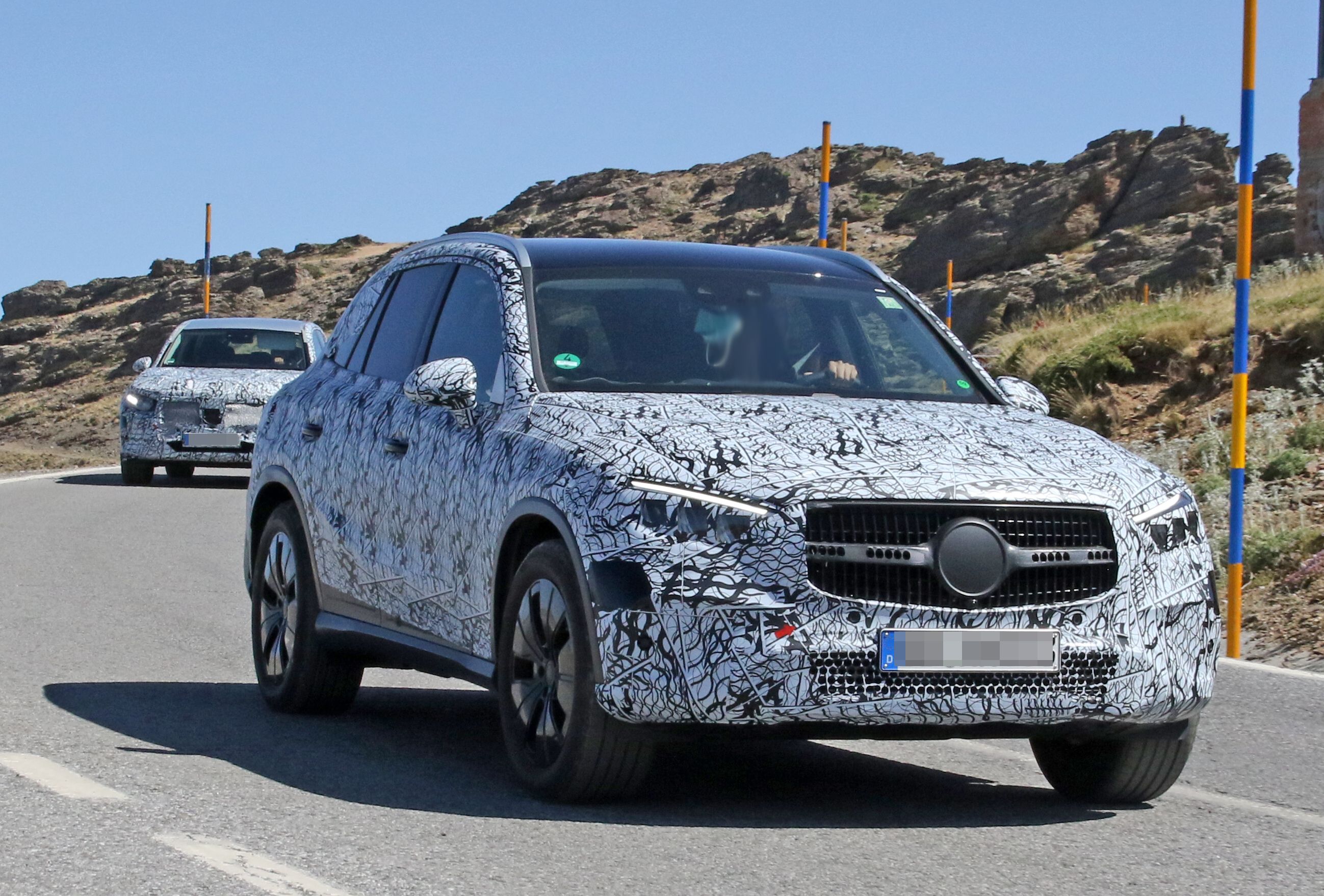
Associated
2023 Mercedes-Benz GLC – The C-Class-based Crossover That May Show To Be A Worthy All-Rounder
Mercedes’ mid-size SUV guarantees extra of every little thing, and this will likely spell hassle for BMW X3 and Audi Q5
How Different Excessive-Vary PHEVs Examine To The Mercedes-Benz GLC 350e
It’s most likely no coincidence that the subsequent three PHEVs with the perfect electrical vary come from Mercedes, within the type of the mid-size Mercedes-Benz GLE 450e, and from Toyota, with the Prius (which pioneered hybrid powertrains again across the flip of the century) and the RAV4, which pioneered the compact SUV section across the identical time.
Mercedes-Benz GLE 450e vs. Different PHEVs With Good All-Electrical Vary Specs
|
Mercedes-Benz GLE 450e |
Toyota Prius PHEV |
Toyota RAV4 PHEV |
|
|
Powertrain |
2.0-liter turbo inline-4 + 1 motor |
2.0-liter inline-4 + 1 motor |
2.5-liter inline-4 + 2 motors |
|
Transmission |
9-speed computerized |
Repeatedly variable |
Repeatedly variable |
|
Energy |
381 hp |
220 hp |
302 hp |
|
Torque |
479 lb-ft |
139 lb-ft |
165 lb-ft |
|
Driveline |
All-wheel drive |
Entrance-wheel drive |
All-wheel drive |
|
Battery Capability |
23.3 kWh |
13.6 kWh |
18.1 kWh |
|
Electrical Vary |
50 miles |
44 miles |
42 miles |
|
Effectivity Metropolis |
60 MPGe |
127 MPGe |
94 MPGe |
|
Gasoline Tank Dimension |
17.2 gallons |
10.6 gallons |
14.5 gallons |
|
Vary |
450 miles |
600 miles |
600 miles |
|
Effectivity Mixed |
23 mpg |
52 mpg |
38 mpg |
|
Annual Vitality Price |
$1,650 |
$700 |
$950 |
|
Beginning Value |
$71,350 |
$33,375 |
$44,265 |
Mercedes-Benz GLE 450e: 43–47 Miles Estimated After 100,000 Miles
The 2025 Mercedes-Benz GLE 450e encompasses a barely smaller lithium-ion battery than its smaller GLC stablemate, however delivers an equally spectacular vary because of the identical suite of battery administration software program. Assuming 1%–2% annual battery degradation, its 43–47-mile electrical vary will nonetheless surpass the out-of-the-box electrical vary of the Toyotas.
Toyota Prius Plug-In Hybrid: 39–42 Miles Estimated After 100,000 Miles
With Toyota’s confirmed battery sturdiness and energetic cooling system, the 2025 Toyota Prius Plug-In Hybrid (previously Prime) is predicted to retain roughly 39–42 miles of EV vary after 100,000 miles. It additionally advantages from a extremely environment friendly regenerative braking system and fuel-sipping ICE that permits it to attain 600 miles of total vary.
Toyota RAV4 Plug-In Hybrid: 36–39 Miles Estimated After 100,000 Miles
The 2025 Toyota RAV4 Plug-In Hybrid encompasses a barely greater lithium-ion battery than the Prius however loses effectivity resulting from its all-wheel drive configuration. Nonetheless, it attains an EPA-estimated 42 miles of electrical vary, and after 100,000 miles, it nonetheless retains 36 to 39 miles with out the two.5-liter ICE coming on-line, because of Toyota’s confirmed hybrid know-how.
The Science Of Battery Composition And Longevity
Battery efficiency naturally declines over time, with most lithium-ion batteries dropping one- to two-percent of their capability per 12 months, resulting in 80-90% retention after 10 years. This degradation is influenced by each controllable elements. akin to charging habits, and random occurrences like excessive chilly.
Controllable elements embody good charging methods, like avoiding full discharges and fast charging to assist sluggish battery degradation, temperature regulation, particularly throughout charging, and driving model to take full benefit of regenerative braking, which ensures regular acceleration to take full benefit of electric-only driving.
Uncontrollable elements embody local weather circumstances, akin to excessive warmth that accelerates chemical breakdown and excessive chilly that saps effectivity, manufacturing variances, and materials growing old, akin to electrode put on and electrolyte breakdown.
EV Battery Comparability: Steel Hydride vs. Lithium-Ion vs. Stable-State
|
Lithium-Ion (Li-Ion) |
Nickel-Steel Hydride (NiMH) |
Stable State |
|
|
Relative Dimension |
Compact |
Bigger than Li-Ion |
Smaller than Li-Ion |
|
Weight |
8–16 kilos per kWh |
27–33 kilos per kWh |
3–5 kilos per kWh |
|
Vitality Density |
330–550 kWh/pound |
132–264 kWh/pound |
660–1,100 kWh/pound |
|
Common EV Vary |
200–400 miles |
100–200 miles |
400–600 miles |
Lithium-ion batteries at present dominate the automotive utility market resulting from their excessive power density, light-weight design, and environment friendly cost cycles. As said above, they provide sturdy longevity, usually retaining 80- to 90-percent capability over 10 years, however are vulnerable to degradation resulting from temperature and poor charging practices.
Nickel-metal hydride (NiMH) batteries have been utilized in early hybrids and are nonetheless utilized in some self-charging hybrids. They’re heavier and fewer energy-dense, making them unsuitable for lengthy EV vary, however they’ve sturdy sturdiness and are much less vulnerable to excessive temperatures. Stable-state batteries are being developed by corporations like Mercedes-Benz, Samsung, and Toyota, and promise greater capability, an extended lifespan, and sooner charging with lowered degradation dangers.
EV Batteries Are Influenced By Geography, Charging Habits And Driving Kinds
Battery life and power retention are influenced by good power use (by way of manufacturing and software program), geographical local weather and terrain variations, quick charging practices, and regenerative braking and driving types.
Excessive warmth hurries up battery degradation, excessive chilly climate reduces effectivity, and hilly or mountainous areas require extra energy, which will increase put on. Quick charging, whereas handy, generates extra warmth, which accelerates battery degradation if steadily used. Regenerative braking recovers power and reduces pressure on the battery. Good power use, akin to preconditioning the battery and optimizing charging cycles, helps protect longevity.
Finest Practices For PHEV Battery Longevity
- Use Stage 2 (dwelling) charging when potential to attenuate warmth buildup.
- Regulate local weather publicity by parking in shaded or temperature-controlled areas.
- Use regenerative braking to get well power and never overwork the battery.
- Hold battery cost between 20- and 80-percent.
- Keep away from aggressive acceleration and high-speed driving.
0:43
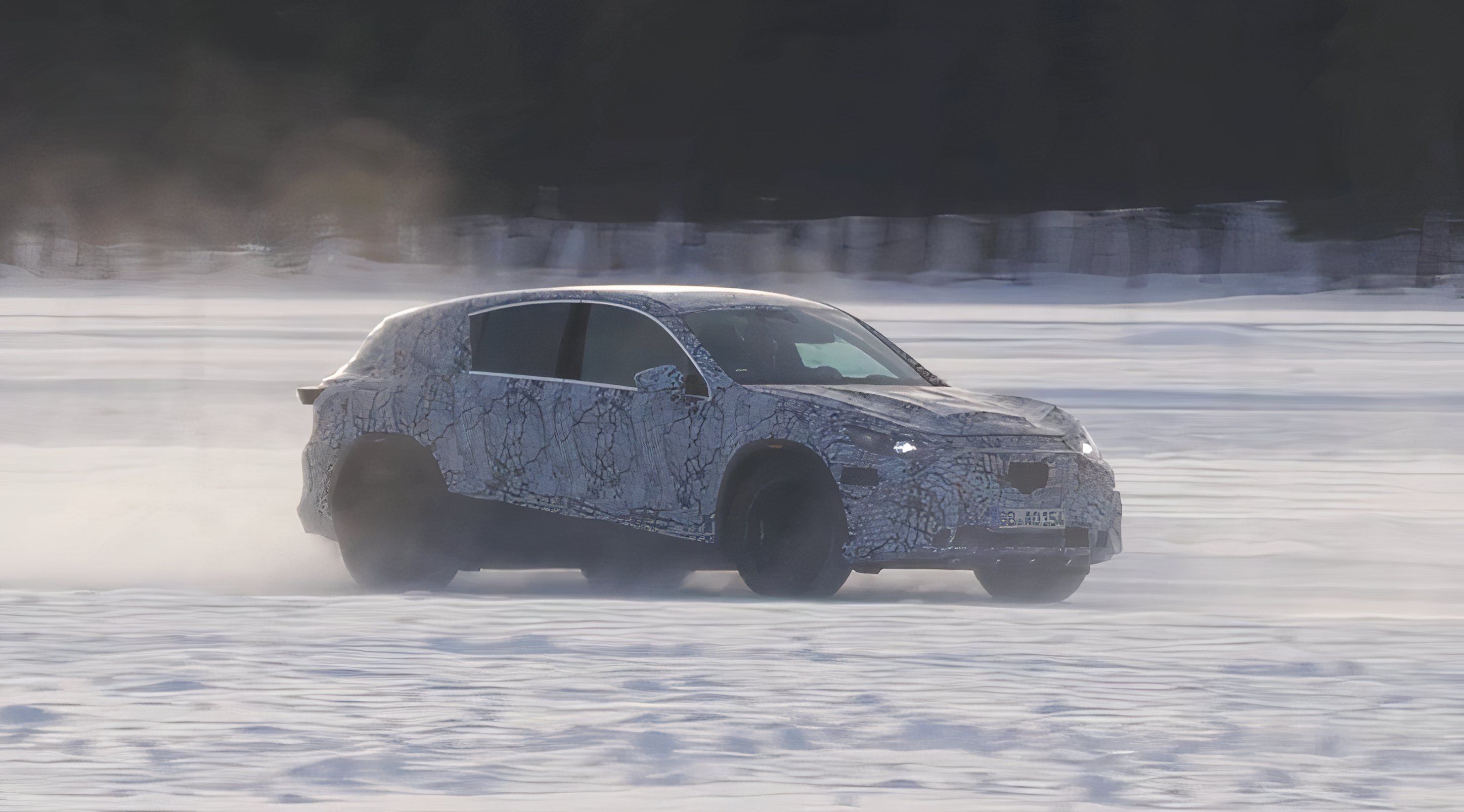
Associated
2026 Mercedes GLC EV Caught Doing Gentle Acceleration Testing On Snow-Coated Roads
Mercedes was spied final winter benchmarking snowy street acceleration of the GLC EV with the ICE=powered GLC.
The Mercedes-Benz GLC 350e: The PHEV Champion For Lengthy-Time period Vary
The 2025 Mercedes-Benz GLC 350e stands out because the PHEV with the best-expected vary retention of over 100,000 miles, because of its out-of-the-box 54-mile all-electric vary, superior thermal administration, and clever battery software program. Its 24.8 kWh lithium-ion battery is projected to retain 80-90% capability over its first 10 years, making certain a sensible electrical vary.
Battery longevity will depend on controllable elements like charging habits, driving model, and local weather administration, in addition to uncontrollable variables like environmental circumstances and pure chemical growing old. House owners can maximize battery life by utilizing good charging methods, avoiding excessive temperatures, and driving conservatively.
Selecting the best PHEV right this moment entails balancing vary, effectivity, and long-term reliability, and though future solid-state and improved lithium-ion batteries will additional improve longevity, effectivity, and vary, the present crop is headed by the 2025 Mercedes-Benz GLC 350e and its potential to go farther after 100,000 miles than present new PHEVs can.

